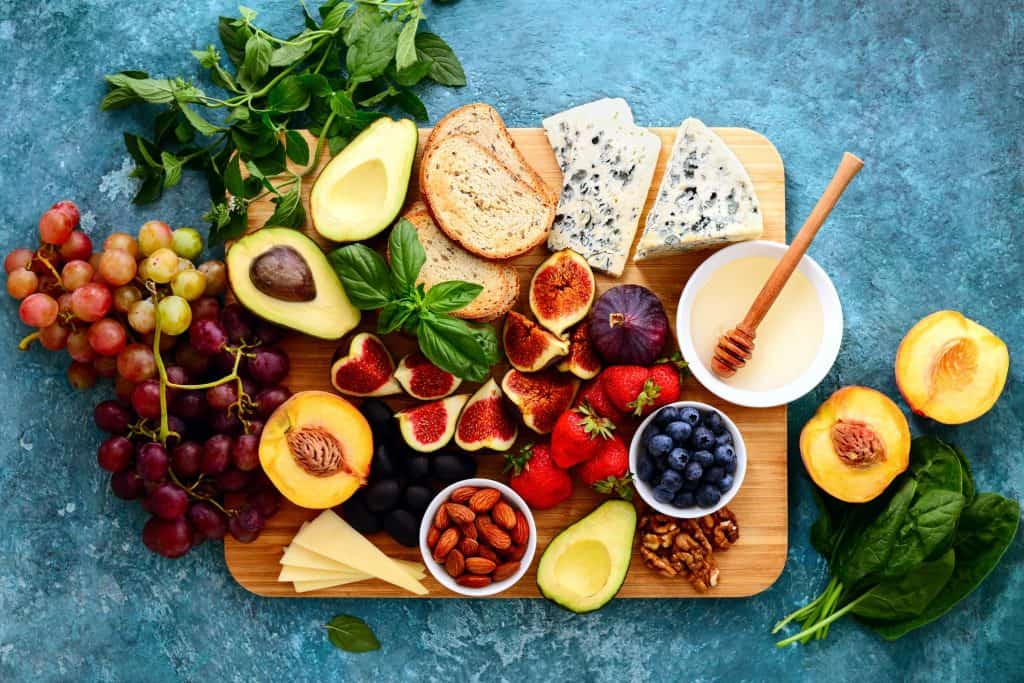As a kid, there’s a good chance someone once said to you, “You are what you eat.” Studies have increasingly shown this to be somewhat true. While you won’t necessarily turn into a French fry or piece of chocolate cake, the foods you eat affect the physiological make-up of your brain, which leads to changes in behavior. In addition, certain foods are better for improving your gut health. Since studies estimate 80 percent of the body’s serotonin is manufactured in the gut, your gut health is extremely important for mental health. Studies have also discovered that certain foods can help those who suffer from anxiety or depression increase their likelihood to cope with and change their mental health.
While the below list is not comprehensive, these mood-boosting foods are a great place to start changing your diet.
Mood-Boosting Foods for the Brain
The brain is an amazing organ; it controls everything in our body, from breathing and walking to feelings and reactions to situations. The brain is made up of a series of neurotransmitters and 60 percent of the brain is fat—and no, not the kind you find in the rest of your body. Eating foods that are rich in good fats, like Omega-3s, help support both brain function and integrity, as well as reduce inflammation, which inhibits the brain’s ability to function properly, and aid in the production of neurotransmitters.
To boost your brain function, eat these mood foods:
- Walnuts: High in Omega-3 fatty acids, they support brain function and can reduce the symptoms of depression
- Avocado: Contain Oleic Acid that boosts brainpower, including supporting synapse formation and memory
- Tomatoes: Certain fresh tomatoes are high in folic acid and alpha-lipoic acid. The Journal of Psychiatry and Neuroscience reported higher instances of folate deficiencies in patients with depression
- Seeds: Sunflower, Hemp, Chia, and Flax seeds are all high in Omega-3’s and help support brain function
- Beets: Contain Betaine to support serotonin production in the brain and Folic Acid, which stabilizes emotional and mental health
- Chamomile Tea: Not only does this help you sleep better, which can improve your mood, but it also helps increase cognitive function during the day
- Coconut: Consists of medium-chain triglycerides, which are fats that can help improve your mood
- Greek Yogurt: Higher calcium content serves as a starter for neurotransmitters in your brain. Studies have shown that inadequate calcium can lead to feelings of depression, anxiety, irritability, and slow thinking
- Turmeric: Curcumin in turmeric may boost the body’s ability to process omega-3 fatty acids, has antioxidant properties to protect the brain, and reduces cytokines that are linked with anxiety development
- Seaweed: the iodine in seaweed helps with thyroid function, which increases energy and brain function
Mood Foods for Gut Health
As mentioned earlier, the ability for the gut to function properly can affect feelings of depression and anxiety. With so much of the body’s serotonin manufactured in the gut, having a balance of good bacteria in your gut is essential for mental health. In addition, foods that balance blood sugar can balance hormones that make you tired and irritable and decrease the chance of hypoglycemia, which has been linked to depression and anxiety.
Improve your gut health with these mood-boosting foods:
- Mushrooms: These fungi act as a probiotic to help promote healthy bacteria in the gut and lower your blood sugar to prevent spikes that can cause mood swings
- Black beans: As a complex carbohydrate, these digest slowly and stabilize your blood sugar while the magnesium boost serotonin production
- Halibut: Packed with protein to influence serotonin production, halibut is also considered one of the most filling foods
- Whole grains: Bread made from whole grains, brown rice, and other complex carbohydrates help increase the number of good bacteria in the gut that help elevate and level out our moods.
These anti-inflammatory mood foods will help increase gut health, reduce brain fog and possibly even help with some aches and pains:
- Dark, leafy greens: Nutrient-dense leafy greens like spinach and kale fight inflammation in the body
- Berries: Raspberries, strawberries, blackberries, and blueberries are some of the highest antioxidant foods available. A two-year study by the Journal of Nutritional and Environmental Medicine showed participants eating antioxidants had significantly lower depression scores
- Apples: Between the antioxidants and fiber, apples can help repair damage and inflammation on a cellular level
Other Foods that Affect Your Mood
Here are some more mood foods that will give you the boost your body needs:
- Dark Chocolate: Good quality dark chocolate can give you an immediate mood boost and improve the blood flow to your brain
- Bananas: Potassium helps reduce symptoms of depression and stress, and they are not likely to trigger a blood sugar spike or crash
- Apricots: Vitamin-C and beta-carotene have been linked to reduced symptoms of depression and anxiety
- Citrus Fruits: The scent of citrus fruits have been shown to improve a person’s mood, and the consumption of two or more servings of citrus daily reduced women’s risk of depression by 18 percent.
When you’re feeling low and open your fridge or pantry to reach for your feel-good snack, consider swapping it out for one of the above mood foods. It’s the first step in changing your diet to improve your mental health.
If you’ve been suffering from anxiety, stress, depression, or addictions, reach out to Core Recovery to discuss the different programs we offer and how we incorporate mood foods into your care plan.





